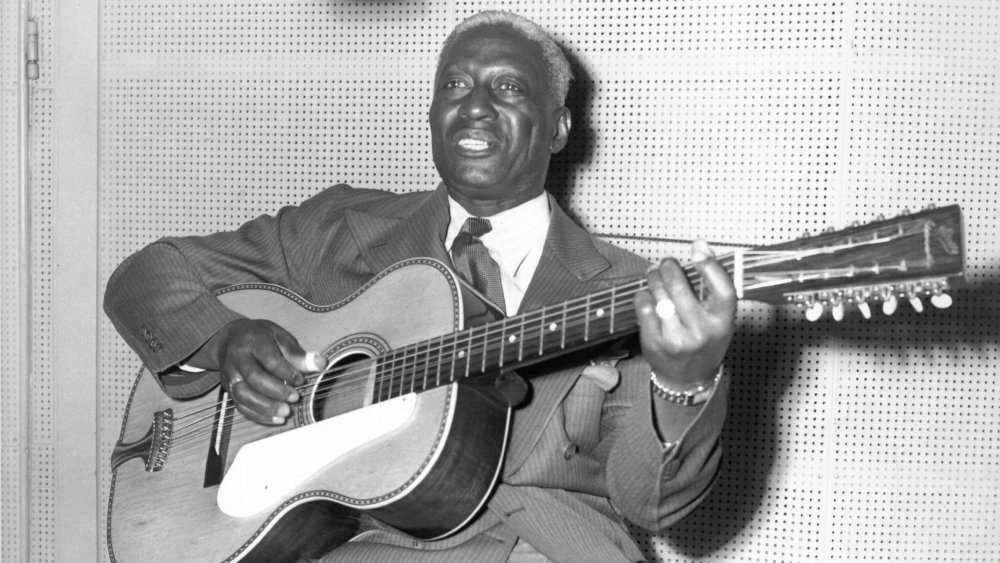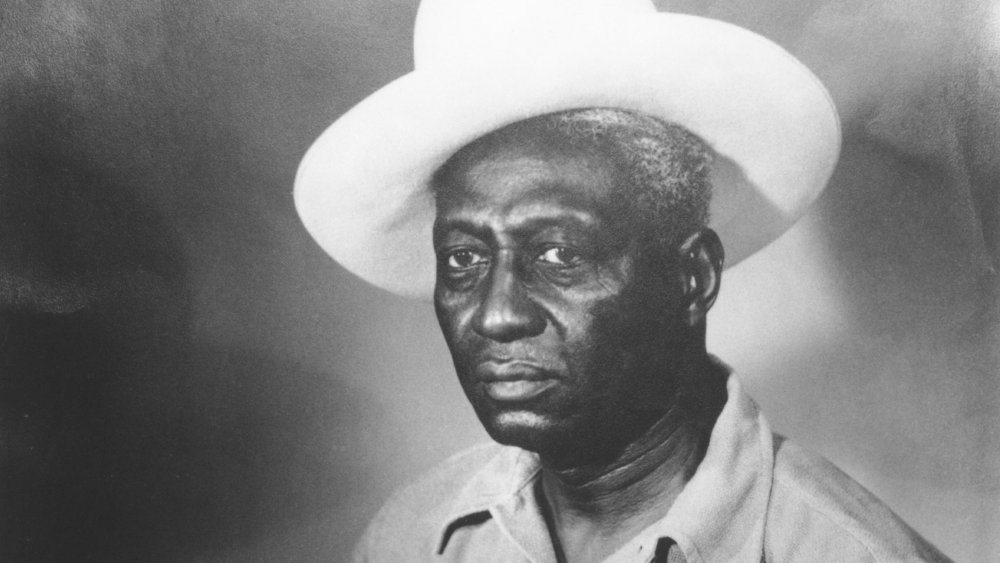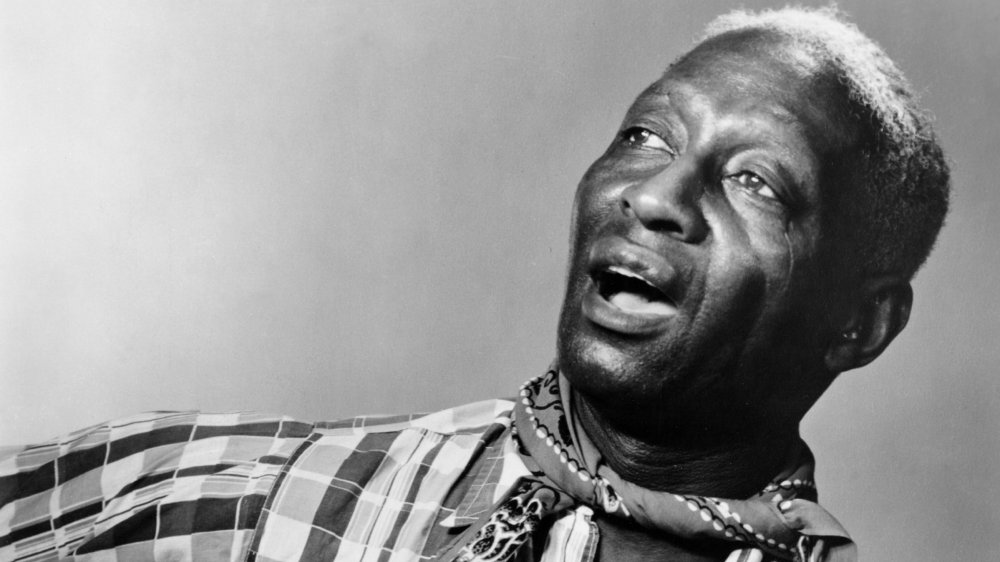Why Lead Belly Might Have Been The Most Violent Musician Of The 20th Century
William Congreve, English playwright born in 1670, told us that "Music has charms to soothe a savage breast, to soften rocks, or bend a knotted oak," and people have been misquoting it ever since. (No, it's not "savage beast.") Pretty powerful stuff, music, if we're to believe Mr. Congreve. Is it, though? Especially when we consider a musician like Huddie Ledbetter, who not only wrote, performed, and recorded foundational American music, but also killed (or, later, attempted to kill) other human beings.
Ledbetter, later known as Lead Belly, was born in Louisiana in the late 1880s — nobody's quite sure of his exact birthdate. He played in a school band and eventually discovered guitar, as Biography tells us, and left home at 16 to pursue music. His love for the guitar eventually became expertise on the 12-string guitar (most guitars have but six strings), working with a Dallas, Texas street musician named Blind Lemon Jefferson, but he was also a capable musician on harmonica, bass, and accordion, says Encyclopedia Britannica.
"A hard name of a harder man"
He had his first serious dustup with the law in 1910, says a lengthy article in the April 1962 edition of Black World. He was sentenced to a year on a chain gang, but managed to escape. He stayed out of prison and trouble for a time, until 1918, when he was sentenced to 30 years for murder and assault with intent to murder. He broke out twice, but was hauled back, once half-drowned. At that point, it seems, he decided to survive by hard work on the prison farm, and through music in the evenings. He played a memorable set for the Governor of Texas, Pat Neff, who visited the prison and in a remarkable mix of charity and cruelty, promised he wasn't going to pardon Ledbetter, at least not right away — Neff wanted Ledbetter to play for him every time he came to visit the prison, "But when I get outa office I'm gonna turn you loose if it's the last thing in the world I ever do."
He was as good as his word. Ledbetter was out in 1925, and continued to pursue music — collecting songs, writing songs, adding to his repertoire. He also nearly died at least three times over the next five years — a bottle fracturing his skull, a knife trying to slit his throat. The third time he fought back and ended up in Angola Prison in 1930, convicted of another assault with intent to murder, sentenced to 10 years.
Lead Belly's songs live on
Musicologist John Alan Lomax found Ledbetter there, reports Black History Now. Lomax had been traveling the country, working for the Library of Congress, collecting recordings of folk musicians and artists. Lomax and his son, Alan, worked on Ledbetter's behalf to earn an early release and, once successful, arranged tours and helped publish a book of his songs.
He became best known as an artist of folk music, playing his own compositions and those of others — songs like "The Midnight Special" and "Goodnight Irene," the latter covered by everyone from Pete Seeger to Eric Clapton. Songs of tragedy and hope, violence and love. Songs as complicated as Ledbetter himself.
Lead Belly — "a hard name of a harder man," said Woody Guthrie of his friend, Ledbetter, per Smithsonian — finally met an opponent he couldn't beat. It wasn't an assailant or a prison system; it was amyotrophic lateral sclerosis — Lou Gehrig's Disease. It took his life in 1949 when he was about 61 years old. Ledbetter was inducted into the Rock and Roll Hall of Fame in 1988.


